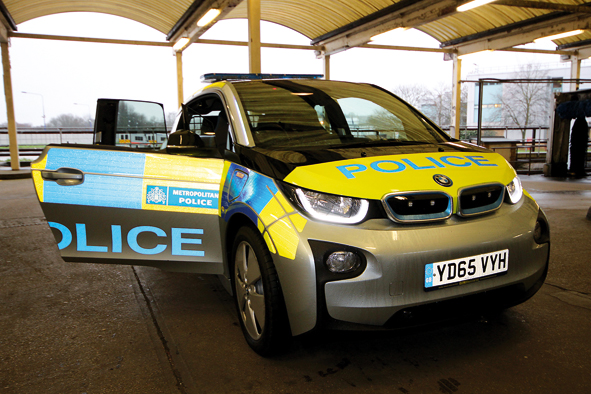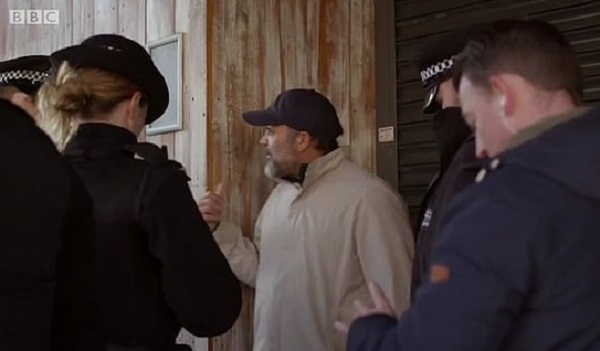Forces test-drive latest electric response vehicle
Forces are trialling the latest electric range extender response vehicle to test the future possibilities of using it as part of the regular fleet. The Metropolitan Police Service (MPS) is conducting a six-month trial across three boroughs while West Yorkshire Police will be testing the vehicle until the end of this month.
Forces are trialling the latest electric range extender response vehicle to test the future possibilities of using it as part of the regular fleet. The Metropolitan Police Service (MPS) is conducting a six-month trial across three boroughs while West Yorkshire Police will be testing the vehicle until the end of this month.
The vehicle will be used by MPS response teams in Westminster, Greenwich and Bexley. In addition to standard testing and evaluation, officers will also report back on their experience of using the vehicle during regular patrolling duties. The MPS Driving School will also test-drive the vehicle to evaluate its potential use within the force fleet.
The i3 Range Extender is being loaned to both forces by BMW.
Terry Hunt, director of MPS Centrally Delivered Support Services, said: The i3 is a brilliant fit with the technology-driven approach of the Met. As an organisation we are committed to keeping our carbon footprint as low as possible and innovative pilots such as this provide us with real-time experience of how that might be achieved.
The electric-powered vehicle uses a small petrol engine to drive a generator when the in-built batteries become depleted to provide the extended range.
West Yorkshire Police will be using the vehicle in response situations across the Bradford district and fleet manager Keith Hidle explained: We have been given the opportunity to evaluate this vehicle from BMW, which will be used in patrol scenarios and is capable of responding to emergencies.
It will give us a greater understanding of the future possibilities and ensure the force remains part of emerging developments.
This latest vehicle operates in an electric mode and when needed uses the petrol engine and generator to extend the distance it can travel before it has to be charged. This makes the vehicle much more usable over extended distances and helps address the phenomena of range anxiety, which is the fear of not making it to your destination before the electric runs out.
With an indicated top speed of 93mph, a 0-62mph time of 7.9 seconds and a range of around 186 miles, it is fully equipped to respond to emergencies in a city setting. It is also a fast-charging car and takes only four hours to return to its full range.
He said the force was already testing a fully-electric Nissan Leaf and plans to assess a 100 per cent electric Peugeot Partner van.
By looking at a selection of vehicles we can assess their suitability for policing and identify what will work in a practical sense, added Mr Hidle.
At this stage we do not have any plans to purchase electric vehicles for our fleet, but when the right time arrives we will be in a strong position to progress ahead.
With the current national discussions around dirty cities and the prospect of future levies, it is an important consideration.




